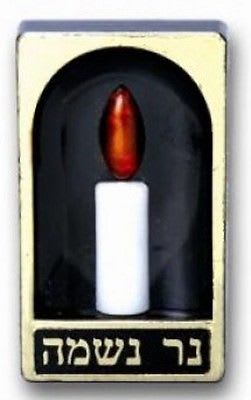Often good deeds done in memory of a dead person are designated as an ILUI NESHAMA – an elevation of the soul or spirit. For example, the Kitzur Shulchan Arukh says that repentance on the anniversary of the death of a parent causes the parent’s soul to ascend in paradise (Ch. 221:1).
This concept is found in the Talmud in a number of places. Near the very end of tractate Berakhot (64a) we find: “Torah scholars find no rest either in this world or in the World to Come, as it is said (Tehilim 84:8): They will go from strength to strength, to appear before HaShem in Zion.”
And in tractate Shabbat (152b-153a) we learn: “For twelve months the body still persists, and the soul ascends and descends; after twelve months, the body is nullified and the soul ascends and from then on never descends”.
One way of understanding this idea is that it is a natural extension of the reward for our actions in this world. It is true that what we do after we leave this world doesn’t have an impact on our reward, as it says in Avoda Zara (3a) “One who didn’t prepare on Erev Shabbat, what will he eat on Shabbat?” But the impact of a person’s acts may not be evident until after his passing. A person may during his lifetime inspire other people to study Torah, engage in acts of kindness, and so on; there is no question that he will receive a reward. But sometimes the acts done during one’s lifetime may continue to inspire others after one’s passing. Thus, it is appropriate to evaluate a person’s achievements even after his departure from this world.
Indeed, the Zohar identifies the various stages of the journey of the soul with a series of judgments (Vayakhel, II:199). At various times after death, a new judgment is done to re-evaluate a person’s impact on the world of the living. Some authors have written that each yahrzeit (anniversary of the death) is a day of judgment; thus it is a natural time for the children or other people who were influenced by the departed to demonstrate the continuing positive impact of their life and deeds.
One interesting passage contrasts the “intermediate” person, or BENONI, with the wicked. Shmuel stated that both are given over to a special angel, but the difference is that one has rest and the other lacks rest (Shabbat 152b). The Maharsha indicates that the BENONI, or partially righteous person, has rest, whereas the wicked person has no rest; he is constantly being tossed about. (The gemara there describes the wicked as being cast back and forth between two angels; one way of understanding this is that while there are many different paths to achieving righteousness and inner peace, this person didn’t settle in to any of them.)
However, Ramban (Shaar HaGemul) gives the opposite interpretation: it is the average person who has no rest. This runs parallel to the gemara (Rosh HaShana 16b) which states that the wicked and the righteous are sealed immediately on Rosh HaShana, whereas specifically the intermediate person is given an extra opportunity to realize his potential, to continue his growth.
Pondering the concept of the ILUI NESHAMA should induce us to reflect on the loves of departed loved ones and consider how their personal example can continue to inspire us to good character and good deeds.
May this column be an ILUI NESHAMA for Rabbi Yehoshua Shmidman of Montreal, who was buried this week in Jerusalem. His conduct inspired countless people to improve their character and deeds.
Rabbi Asher Meir is the author of the book Meaning in Mitzvot, distributed by Feldheim. The book provides insights into the inner meaning of our daily practices, following the order of the 221 chapters of the Kitzur Shulchan Arukh.
The words of this author reflect his/her own opinions and do not necessarily represent the official position of the Orthodox Union.
